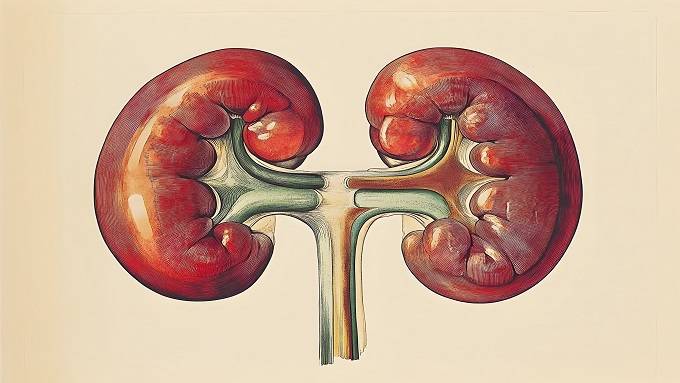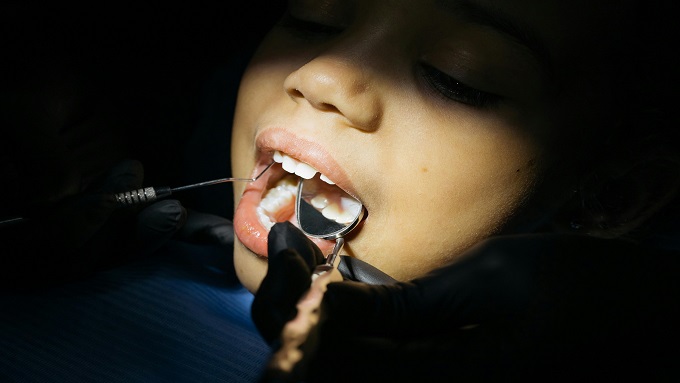MITIGATION OF SOIL-TRANSMITTED HELMINTHIASES RESURGENCE IN THE ERA OF COVID-19 DISRUPTION: A LITERATURE REVIEW

Downloads
Highlights:
1. Prolonged interruptions and delays that accompany the COVID-19 pandemic have further increased the spread of STH in high-transmission areas.
2. Adaptations carried out in the context of a pandemic are able to strengthen efforts to sustain deworming programs based on primary health facilities and their integration into community-based platforms.
3. Community-based WASH activities must be continued by adjusting WASH messages to focus on preventing the transmission of COVID-19.
Background: Interruptions and postponements are influencing people's desire for soil-transmitted helminthiases (STH) services as all countries are fighting the Covid-19 pandemic. The risk of spreading STH in high-transmitting areas increases with increased disturbance. Indonesia is a compatible host country for STH because it is a tropical country. The STH impacts the population's nutrient status and disturbs their cognitive processes. Objective: To describe the issue and how best efforts had been made to mitigate the possibility of a resurgence of intestinal worms during the disruptions caused by the Covid-19 pandemic. Material and Method: Search for the most recent articles in a database of research in January 2022 on Google Scholar, Science Direct, and PubMed. Qualifying articles were then extracted and synthesized qualitatively. Discussion: The interference and postponement of the deworming control program due to COVID-19 had a tentative effect on the progress of achieving the elimination of STH as a public health problem by 2030. Conclusion: Best practices show that revitalization efforts to control STH by strengthening integrated interventions and collaborations through the expansion of POPM, PHBS, and STBM in line with COVID-19 prevention efforts with mitigation innovations shifting from controlling morbidity to terminate the transmission of STH.
Bradbury, R.S. Piedrafita, D. Greenhill, A. Mahanty, S., 2020. Will helminth co-infection modulate Covid-19 severity in endemic regions?. Nature Reviews Immunology, 20(6): 342–342. doi: 10.1038/s41577-020-0330-5.
Brooker, S.J. Ziumbe, K. Negussu, N. Crowley, S. Hammami, M., 2021. Neglected tropical disease control in a world with Covid-19: An opportunity and a necessity for innovation. Transactions of The Royal Society of Tropical Medicine and Hygiene, 115(3): 205–207. doi: 10.1093/trstmh/traa157.
Brosschot, T.P. Reynolds, L. A., 2018. The impact of a helminth-modified microbiome on host immunity. Muccosal Immunology, 11(4): 1039-1046. doi: 10.1038/s41385-018-0008-5.
Fauziyah, S. Putri, S. Salma, Z. Wardhani, H. Hakim, F. Sucipto, T. et al., 2021. How should Indonesia consider its neglected tropical diseases in the Covid-19 era? hopes and challenges (Review). Biomedical Reports, 14(6): 53. doi: 10.3892/br.2021.1429.
Freeman, M.C. Akogun, O. Belizario, V. Brooker, S.J. Gyorkos, T.W. Imtiaz, R. et al. 2019. Challenges and opportunities for control and elimination of soil-transmitted helminth infection beyond 2020. PLOS Neglected Tropical Diseases. Edited by J. P. Webster, 13(4): e0007201. doi: 10.1371/journal.pntd.0007201.
Gluchowska, K. Dzieciatkowski, T. Sedzikowska, A. Deniziak, A.Z. Mlocicki, D., 2021. The new status of parasitic diseases in the covid-19 pandemic-risk factors or protective agents?. Journal of Clinical Medicine., 10(11): 1-14. doi: 10.3390/jcm10112533.
Gutman, J.R. Lucchi, N.W. Cantey, P.T. Steinhardt, L.C. Samuels, A.M. Kamb, M.L. et al., 2020. Malaria and parasitic neglected tropical diseases: Potential syndemics with Covid-19?. The American Journal of Tropical Medicine and Hygiene. doi: 10.4269/ajtmh.20-0516.
Hollingsworth, T. D. Mwinzi, P. Vasconcelo, A. de Vlas, S. J., 2021. Evaluating the potential impact of interruptions to neglected tropical disease programmes due to Covid-19. Transactions of The Royal Society of Tropical Medicine and Hygiene, 115(3): 201–204. doi: 10.1093/trstmh/trab023.
Hotez, P.J. Fenwick, A. Molyneux, D., 2021. The new covid-19 poor and the neglected tropical diseases resurgence. Infectious Diseases of Poverty, 10(1): 10. doi: 10.1186/s40249-020-00784-2.
Jourdan, P.M. Lamberton, P.H.L. Fenwick, A. Addiss, D.G. 2018. Soil-transmitted helminth infections. The Lancet, 391(10117): 252–265. doi: 10.1016/S0140-6736(17)31930-X.
Kurniati, M. Budiono, B. Sulistyawati, S.W., 2019. Intestinal protozoa infections in relation to nutritional status of the students Mandangin Island Elementary School 6 in Sampang Regency. JUXTA: Jurnal Ilmiah Mahasiswa Kedokteran Universitas Airlangga, 10(1): 25. doi: 10.20473/juxta.V10I12019.25-28.
Malizia, V. Giardina, F. Vegvari, C. Bajaj, S. McRa-McKee, K., 2021. Modelling the impact of covid-19-related control programme interruptions on progress towards the WHO 2030 target for soil-transmitted helminths. Transactions of The Royal Society of Tropical Medicine and Hygiene, 115(3): pp. 253–260. doi: 10.1093/trstmh/traa156.
Mationg, M.L.S. Tallo, V.L. Williams, G.M. Gordon, C.A. Celements, A.C.A. McManus, D.P. et al., 2021. The control of soil-transmitted helminthiases in the Philippines: The story continues. Infectious Diseases of Poverty, 10(1): 85. doi: 10.1186/s40249-021-00870-z.
Mau, F., 2017. Prevalence and intensity of soil-tansmitted helminth infections among Elementary School Students in West Sumba and Central Sumba Districts East Nusa Tenggara, Indonesia. Journal of Medical Science And Clinical Research, 5(10). doi: 10.18535/jmscr/v5i10.88.
Montresor, A. Mupfasoni, D. Mikhailov, A. Mwinzi, P. Lucianez, A. Jamsheed, M. et al., 2020. The global progress of soil-transmitted helminthiases control in 2020 and World Health Organization targets for 2030. PLOS Neglected Tropical Diseases. Edited by S. Babu, 14(8): e0008505. doi: 10.1371/journal.pntd.0008505.
Regulation of The Minister of Health, Republic of Indonesia. 2017. Peraturan Menteri Kesehatan Republik Indonesia Nomor 15 Tahun 2017 tentang Penanggulangan Cacingan.
The Ministry of Health Republic of Indonesia. 2021. Kegiatan survei penilaian prevalensi cacingan pasca POPM pada murid SD/MI di Kabupaten Magetan Provinsi Jawa Timur Tahun 2021.
Toor, J. Adams, E.R. Aliee, M. Amoah, B. Anderson, R.M. Ayabina, D. et al., 2021. Predicted impact of Covid-19 on neglected tropical disease programs and the opportunity for innovation. Clinical Infectious Diseases, 72(8): 1463–1466. doi: 10.1093/cid/ciaa933.
Wibawa,T. Satoto, T.B.T., 2016. Magnitude of neglected tropical diseases in Indonesia at postmillennium development goals era. Journal of Tropical Medicine, 2016:1-9. doi: 10.1155/2016/5716785.
World Health Organization. 2022. Soil-transmitted helminth infections, World Health Organization.
World Health Organization., United Nations Children's Fund. 2020. Pelayanan kesehatan berbasis komunitas, termasuk penjangkauan dan kampanye, dalam konteks pandemi Covid-19. Geneva: World Health Organization.
Copyright (c) 2022 Pilar Menara Falah, Yani Corvianindya Rahayu, Atik Kurniawati, Yudha Nurdian

This work is licensed under a Creative Commons Attribution 4.0 International License.
1. The journal allows the author(s) to hold the copyright of the article without restrictions.
2. The journal allows the author(s) to retain publishing rights without restrictions.
3. The legal formal aspect of journal publication accessibility refers to Creative Commons Attribution 4.0 International License (CC-BY).
































